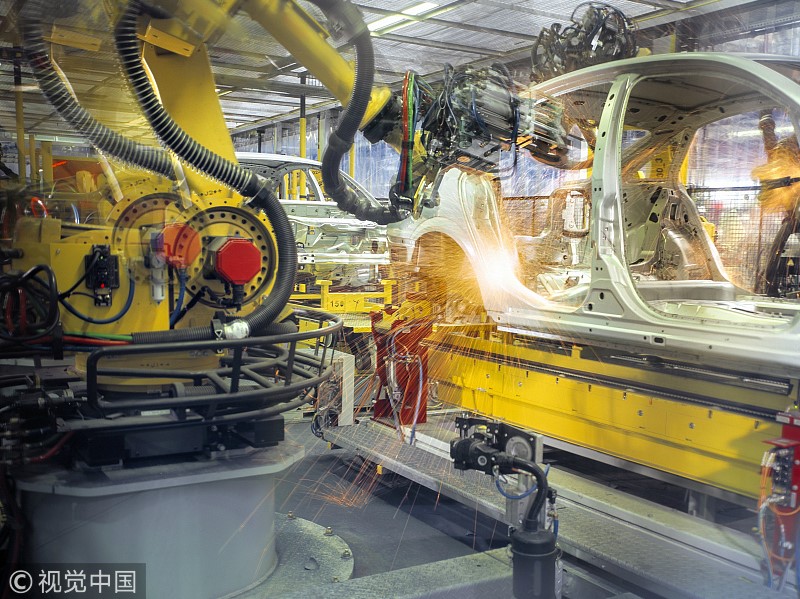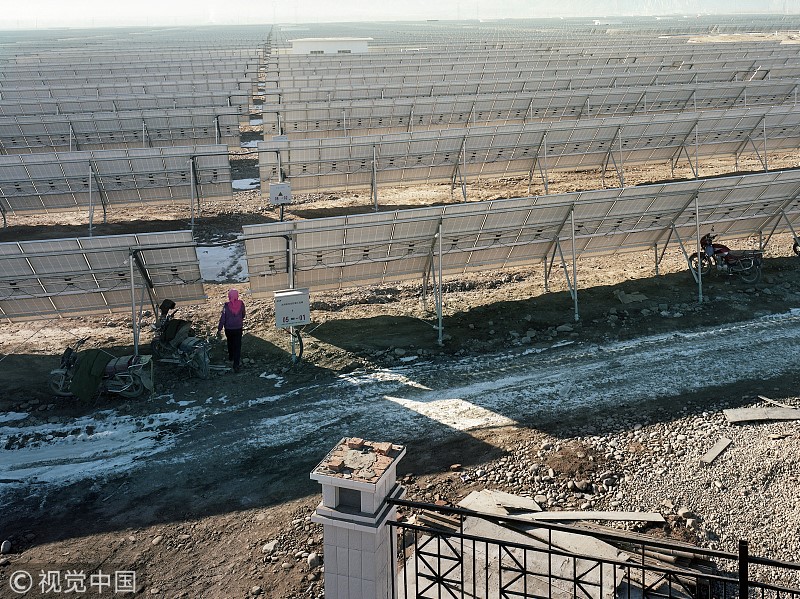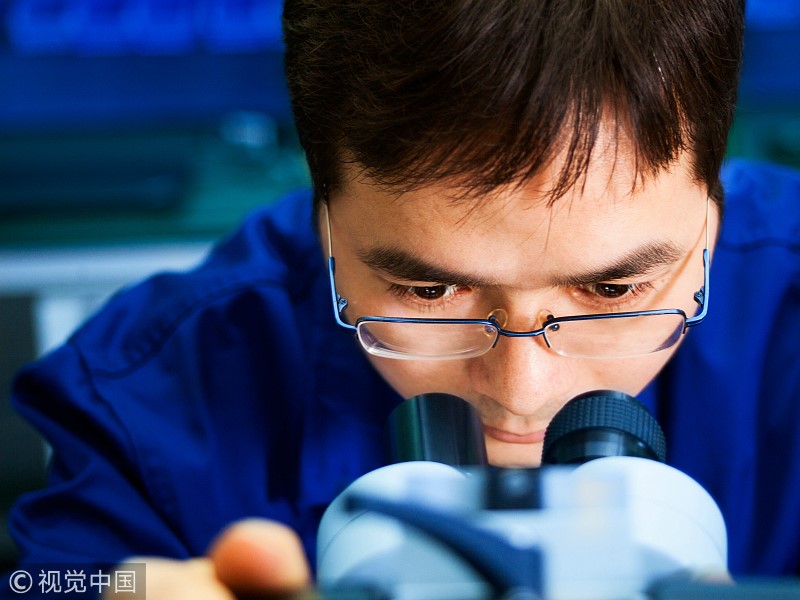Chinese Premier Li Keqiang paid an official visit to Germany recently, where he co-chaired the fifth round of China-Germany intergovernmental consultations along with German Chancellor Angela Merkel.

Welding robot are working in an automobile factory. (Photo/VCG)
Li’s visit to Germany, which follows a meeting with leaders of China-Central and Eastern European countries in Bulgaria, will facilitate the cooperation between China and Germany in Central and Eastern Europe. This year marks the 15thanniversary of the establishment of a comprehensive strategic partnership between China and the European Union. Germany is an important and reliable partner of China in the EU. The upgrading of Sino-German relations is bound to play a leading and exemplary role in China-EU cooperation.
Positive Signals
Prior to his official visit to Germany, Li Keqiang wrote a signed article entitled “Good Partners for Greater Openness and Innovation Cooperation” in Frankfurter Allgemeine Zeitung, one of the mainstream German newspapers. During his visit to Germany, Li Keqiang had meetings with Merkel. The two sides met with reporters, witnessed the signing of bilateral cooperation documents, attended and delivered speeches at the China-Germany Economic and Technical Cooperation Forum, and visited the exhibition of the Sino-German self-driving car. In addition, Li Keqiang also met with German President Frank-Walter Steinmeier. On the basis of political mutual trust, economic and trade exchanges and people-to-people exchanges and under the themes of “bilateral openness” and “innovative cooperation,” Li Keqiang’s visit to Germany sent a clear signal of firmly safeguarding multilateralism and developing international cooperation to promote Sino-German relations and set up an example of mutual-beneficial cooperation model.
In the current context of the unilateralism and the resurgence of protectionism, China and Germany, the two largest economies at both ends of the Eurasian continent, have become the mainstay of maintaining the global economic order. Deepening mutual opening-up is indeed a highlight of Li Keqiang’s visit to Germany. As it celebrates the 40th anniversary of reform and opening-up, China is pushing for a new round of high-level opening-up. In May 2017, President Xi Jinping announced at the Belt and Road Forum for International Cooperation that China will hold China International Import Expo from 2018 – a major move for China in firmly supporting trade liberalization and economic globalization, and opening its market to the world. During the visit, China invited Germany to attend the first China International Import Expo and welcomed it to benefit from the huge market dividend boosted by China’s new round of openness. Germany is also willing to expand exports of high-tech products to China and encourage enterprises to conduct technical exchanges. As Li Keqiang emphasized at the press conference: “Sino-German trade cooperation is bilateral. It does not target third parties and will not be affected by third parties.”

Solar panel farm in northwest China. (Photo/VCG)
In terms of investment cooperation, China welcomes Germany to continue to expand investment in China and encourages German companies to invest in setting up factories in the central and western regions of China. The two sides reached an agreement for the first time on increasing the share ratio of German auto companies’ joint venture projects in China and establishing large-scale wholly-owned projects in China. In the field of finance and economics, Germany appreciates China’s measures to further open up its financial market; China supports the construction of the Frankfurt Financial Center and the Offshore Renminbi Market, and agreed to grant Deutsche Bank the qualification of underwriters of non-financial corporate debt financing instruments.
The fruitful results of Li Keqiang’s visit to Germany are most evident in the field of innovation cooperation. Germany is willing to give full play to its own advantages and carry out “Industry 4.0” cooperation with China.

A Chinese QC inspector engineer is operating. (Photo/VCG)
In the face of a new round of industrial revolution, China and Germany are actively promoting cooperation in emerging industries such as smart manufacturing, digitalization, autonomous driving, artificial intelligence, and new energy vehicles.
The two sides agreed to strengthen industry-university-research cooperation and technological innovation, and fully tap the potential of digital development to promote agricultural cooperation. After the intergovernmental consultation, the two countries’ leaders witnessed the signing of more than 20 bilateral cooperation documents in the fields of agriculture, education, youth, health, chemical, communications, automobile, and autonomous driving, with a total amount of nearly 30 billion US dollars.
On July 10, BMW Group and Chinese Internet giant Baidu signed a Memorandum of Understanding (MoU), under which the BMW Group will join the Apollo, Baidu’s open autonomous driving platform, as a board member. Under the newly-signed MoU, both companies will join forces to provide safe, convenient and smart mobility services for consumers in China.
The two countries are highly complementary in the high-tech field. In pushing “Made in China” products to middle and high-end markets, China has to strengthen its independent research and development ability and make good use of international high-quality resources, and aims to learn from “Made in Germany” in particular. Although Germany manufacturing industry is very strong, its domestic market is limited. Therefore its further development should be based on expanding the international market, especially the huge Chinese market. In a word, Sino-German innovation cooperation aims to work together to expand the market, benefit the two peoples, and achieve mutual benefit and win-win results.
Xu Siji, Associate Professor, German Language Department, Beijing Foreign Studies University